What Are The Signs and Symptoms of Gambling Addiction?
In the same way that individuals can become addicted to drugs or alcohol, it is possible for those who gamble on a regular basis to become dependent on the activity.
There are lots of signs that indicate when an individual’s gambling has reached an unhealthy level.
The risk of developing this form of addiction can be increased by a variety of factors, and the consequences of gambling addictions can be really severe.
Those who develop unhealthy gambling habits are strongly encouraged to seek medical help as soon as they can in order to make a full psychological recovery.
What is a gambling addiction?
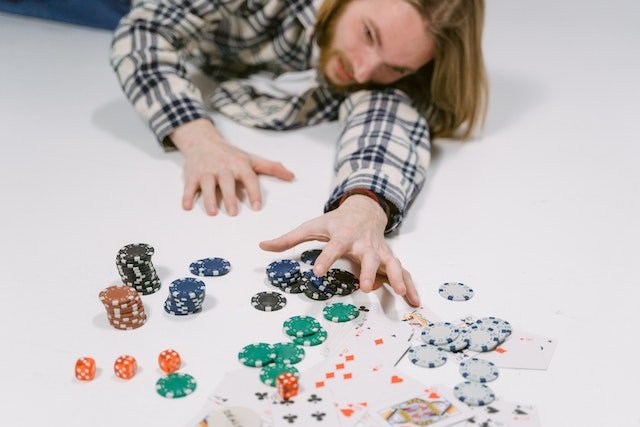
While many people like to gamble or place bets on a semi-regular basis, that does not mean that they are addicted to it. Gambling addiction is a condition with very specific symptoms and consequences, and it is very serious.
When an individual is addicted to gambling, they feel an uncontrollable impulse to do it frequently, sometimes even every day. They don’t care what their physical or financial situation is, and will not be put off when trying to get the buzz that gambling provides.
Those with this condition tend to increase the significance of their bets as they continue to do it, regardless of whether they can pay for such decisions, in order to attain the same level of excitement and adrenaline that they attained when they first started.
The prevalence of addictive gambling is partly facilitated by the fact that gambling is widely accessible and normal in our society [1].
Signs and symptoms – how to spot gambling addiction
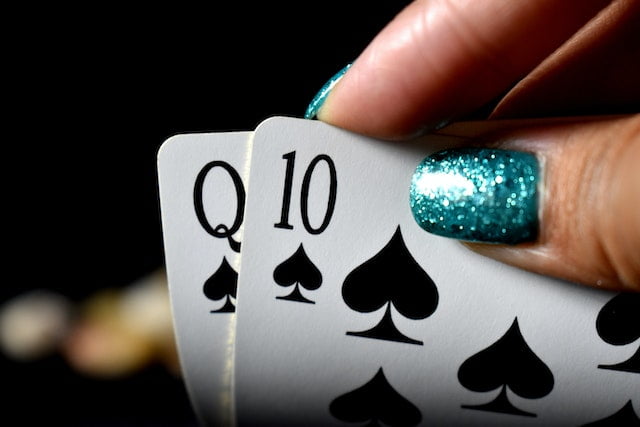
Being able to spot the difference between healthy gambling and addiction can be very difficult. Helping those who need support is a matter of spotting the symptoms of unhealthy behaviour, and these can come in several forms.
Even though it does not involve the ingesting of any substance, gambling addiction can trigger physical symptoms.
As well as these, individuals can suffer both psychologically and socially.
Physical symptoms of gambling:
- Headaches
- Upset stomach, causing nausea, vomiting, or diarrhoea
- Reduced appetite, causing weight loss
- Troubled sleep, potentially causing insomnia, restlessness, or fatigue
Psychological symptoms of gambling:
- Intense anxiety or prolonged nervousness
- Increased aggression, irritability, or restlessness
- Mood swings
- Being defensive about gambling behaviours
- Strong feelings of guilt
- Inability to concentrate, make reasonable decisions, or keep track of time
- Memory lapses
- Increased mental health issues
Social and behavioural symptoms of gambling:
- Inability to stop or reduce gambling
- Gambling regardless of whether it is affordable
- Losing interest in previously enjoyed hobbies and events
- Increased risk-taking, especially regarding how much money an individual gambles
- Tension with family and friends as a result of financial issues caused by gambling
- Justifying continued gambling as ‘winning back’ losses
- Complications at work or school due to gambling
- Talking about gambling a lot
- Denying the existence of a gambling problem
- Increased social isolation
- Stealing or borrowing money
Long-term impacts of gambling addictions

While there are many short-term symptoms that indicate when an individual is experiencing gambling addiction, there are many long-term impacts that also result from the condition.
While more difficult to spot, knowing these signs can help identify unnoticed conditions.
These long-term impacts include:
- Social isolation and loneliness
- Diminished physical and mental health
- Unemployment
- Breakdown of familial relationships and friendships
- Financial hardship
- Homelessness
- Conflicts with the law, potentially resulting in imprisonment
- Suicidal thoughts and tendencies
How do individuals become addicted to gambling?
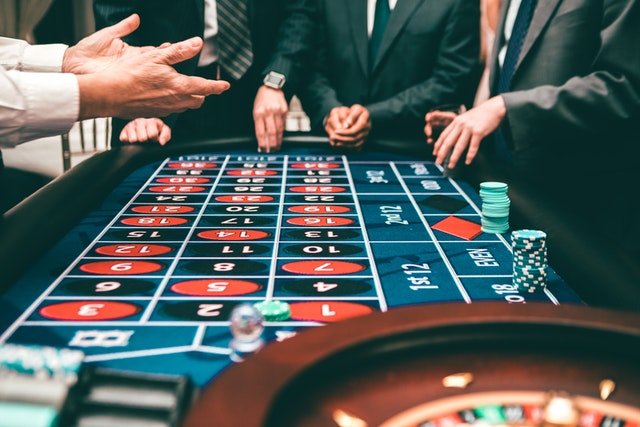
There is no single cause or reason for why individuals become addicted to gambling, but there are several factors that can make them more likely to develop the condition.
Genetics
The traits that we biologically inherit from our parents have a huge influence on how we experience gambling.
The way our brain experiences the ‘high’ created by gambling dictates how likely we are to fall into addictive cycles.
These biological traits will also influence how able an individual is to stop gambling once they have started. If there is a history of addiction in their family, they will be more at risk.
Upbringing and social influences
Our view of the world is shaped by how we are raised, and this fundamental perception also dictates how we see gambling and betting.
If an individual grows up in a household or culture where gambling is commonplace and treated like a normal, healthy activity to engage in, then they will be much more likely to gamble on a regular basis as an adult and become addicted.
Additionally, the relationships that an individual has in adult life can also influence their perception of gambling. If, for example, they have a partner or friend who gambles a lot, they may learn to consider it as normal and become addicted themselves.
Mental health
As with many other addictions, gambling addictions are much more likely to develop in those who experience difficulties with their mental health [2].
When individuals gamble, they feel a buzz or ‘high’ that makes them feel happy or excited. Those who experience mental health challenges which cause them negative symptoms are therefore likely to gamble as a form of self-medication.
For example, someone with anxiety is more likely to become addicted to gambling as the activity will give them temporary relief from their symptoms, incentivising them to continue doing it.
Sex
Men are more likely to become addicted to gambling than women.
Personality
An individual’s personality traits can leave them more vulnerable to gambling addiction, especially when those traits relate to winning in any way.
Those who are highly competitive are therefore more likely to become dependent on the feeling of victory that gambling provides, as are those who are bored easily and those who have impulsive tendencies.
Helping someone with a gambling addiction
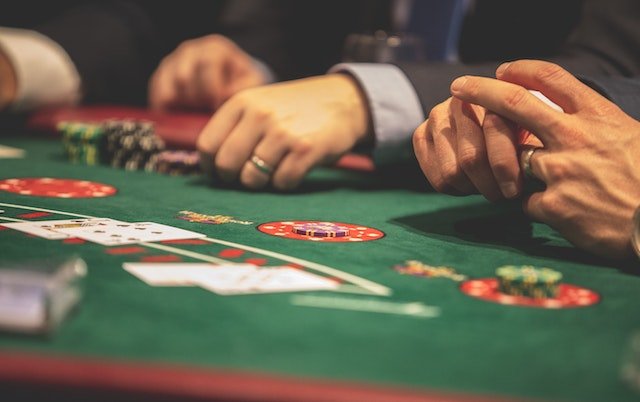
The signs and symptoms of gambling addictions can take huge tolls on both an individual’s life and the people around them.
A gambler themselves can suffer physically and psychologically, and the wider financial consequences can damage entire families.
As a result, those closest to gambling addicts will be interested to know how they can help their loved one get help and make a full recovery. For someone who is not aware of their gambling problem, this help usually comes in the form of interventions.
Interventions – how do they work?
Helping someone always begins by having a simple conversation with them. Getting an individual to sit and listen to concerns about their behaviour can be very difficult, but it can help to invite some of their closest family members and friends to get their attention.
During the discussion, it helps to take a calm, understanding approach. Without judging the individual, explain how their behaviour has become a problem and outline how everyone present has been impacted by the excessive gambling.
After explaining your concerns, listen to what the individual has to say. Hear them out, understand their worries, and offer them support. Only by being open and understanding can you convince them to seek help and get treatment.
How are gambling addictions treated?
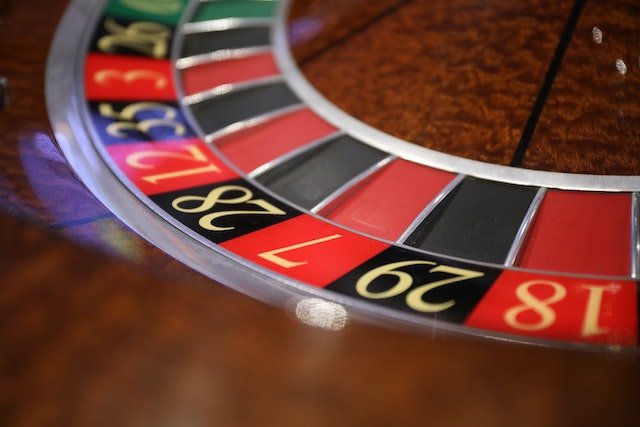
Helping individuals beat their addiction is all about engaging in therapy that supports them in resisting the urge to gamble. Therapy activities can take a range of forms, focusing on unhealthy thoughts, emotions, and wider influences.
When an individual enters therapy for addictive gambling, they are taught to recognise the triggers that prompt them to engage in the activity and understand how these influence their behaviour.
In Cognitive Behavioural Therapy (CBT), for example, individuals are supported in recognising their harmful thought processes and what triggers them, and understanding how they directly cause them to gamble.
Once triggers are understood, therapy provides individuals with techniques for reducing their vulnerability to succumbing to impulses to gamble once treatment ends. These usually work to make individuals feel happier or calmer, reducing their demand for gambling.
Such techniques include breathing exercises, mindfulness, and exercise.
Getting help from Rehab Recovery
Developing a gambling addiction can be very scary, with the potential consequences capable of having a huge impact on physical, psychological, and financial wellbeing.
At Rehab Recovery, we understand that tackling addiction can be daunting.
Treatment can feel like a confusing and inaccessible prospect, and that’s why we are here to help you find relevant support and answer any questions that you may have.
If you are struggling with a gambling addiction, or you know someone who is, don’t hesitate to get in touch and give us a call on 0800 088 66 86.




